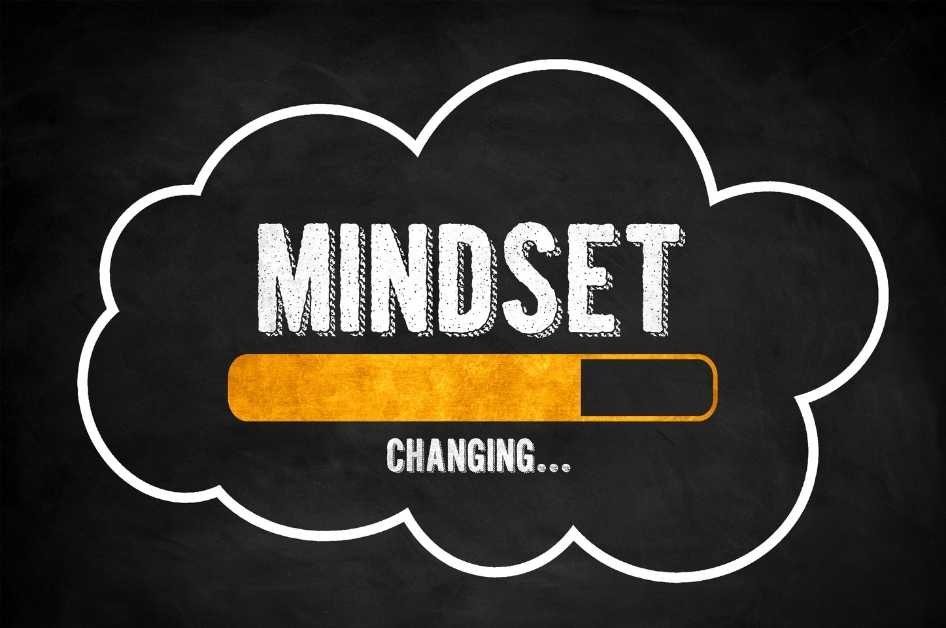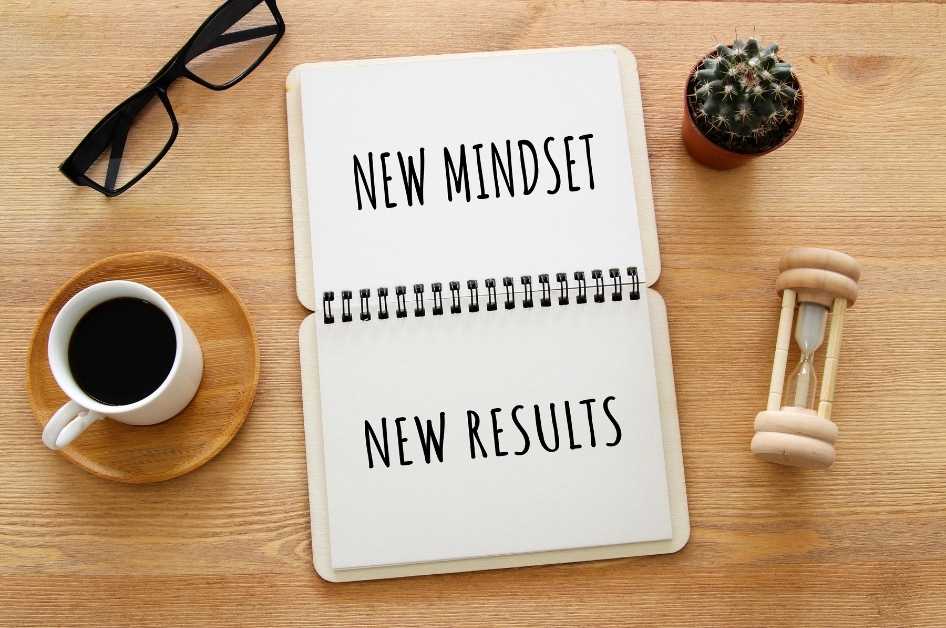Mindset By Carol Dweck: Book Summary/Review
21 February 2021
Did you know that students with a growth mindset are more than 2x more likely to score in the top 20%?
According to research done on 10th graders, students who tested positive for the growth mindset were much more likely to achieve high scores.
Students with the fixed mindset, however, were almost 3x more likely to score in the bottom 20%.
In this review I will give you:
- Overall review of Mindset by Carol Dweck and whether YOU should read it.
- Chapter-by-chapter summaries and actionable takeaways
- Actionable steps that you can take right now to improve your mindset.
Disclaimer: This post contains amazon affiliate links for the book Mindset by Carol Dweck. All purchases will go to supporting Chris Dismissed, thank you!
Table of Contents
Overall Review of Mindset
Chapter Summaries
Actionable Steps

Mindset Definitions
Before we dig into Mindset and the contrasting elements of the two main mindsets, we need to define the differences between them.
What is a Fixed Mindset?
The fixed mindset is a psychological perspective that views people, objects, and qualities as fixed, immovable, and unchangeable.
What is a Growth Mindset?
The growth mindset is a state of being that assumes that all qualities, people, and natures are malleable, changeable, and capable of growth.
Those with growth mindsets do not simply focus on achievements (although they are important metrics) but are focused on growth in any given situation.
Should You Read Mindset By Carol Dweck?
Chris Dismissed Rating: 8.5/10
Overview: Solid book on the impact that a fixed and growth mindset can have on learning, success, and quality of life. This book is very focused on mindset and stays true to its title. Read Mindset if you want to change your mental approach to life.
Who Should Read Mindset?
Any hungry student, professional, or other person looking to grow in the understanding of themselves and people around them should read Mindset. This book is fundamental knowledge for anyone studying psychology, personal development, meta-learning, or entrepreneurship.
Pros:
- Lots of original research.
- Stay focused on the core subject of the book: Mindsets.
- Gives great definitions for the mindsets and backs those claims up substantially.
- Provides excellent examples that anyone can relate to.
- Clear evidence makes the book very easy to understand.
Who Should NOT Read Mindset?
Anyone convinced that people are unchangeable and that talent is born should skip out on reading Mindset. The research in this book will likely conflict with your worldview and provide little benefit.
Cons:
- Not a short read.
- More research is needed in this field to understand mindset benefits truly.
Top 3 Points From Mindset
1. There are two primary mindsets, the fixed mindset, and the growth mindset.
2. Mindsets are key to how we view the world and how we behave in our day-to-day lives. Mindsets are also key to happiness.
3. By adopting a growth mindset in all areas of your life you can approach change in a healthy way and continue to grow.

Chapter 1: The Mindsets
Carol Dweck begins her book by investigating what a mindset is in the first place.
Contrary to popular belief, Alfred Binet’s IQ test was built to monitor people’s growth and development, not their static intelligence.
Mindset is actually central to personality. Most people think that their personalities are set in stone, but personality is something that can be learned and develop.
There are two primary mindsets: the fixed mindset and the growth mindset. Here are some characteristics of each of them…
Fixed Mindset:
- Character traits are set in stone.
- I am who I am and that’s that. I can’t change.
- People’s IQ is fully descriptive and tells their full story.
- One thing defines me (my money, my grades, my relationship status) and that stays the same.
Growth Mindset:
- Everyone can change and grow at any time.
- I am who I am, but I can be more than I am right now.
- People’s IQ scores are a measurement but are not indicative of a person’s true value.
- I get to define who I am!
Most of the time we have no idea how much we are truly capable of. One key to unlocking this is reorienting your mindset.
People with a growth mindset think about action. They think about how they can improve themselves and confront challenges boldly.
Remember, just because you can’t do it right now doesn’t mean that you can’t grow into doing it.
Chapter 1 Key Takeaways:
- There is a large difference between a fixed and growth mindset.
- IQ and other intelligence indicators (grades, financials, followers, etc.) are important metrics but do not tell the full story.
- You can change your mindset right now.
Analysis and Application:
For this chapter, start by answering the following questions.
- Is my intelligence unchanging?
- Can I learn new things and change my intelligence?
- Can I always change it?
- Can I substantially change myself?

Chapter 2: Inside the Mindsets
Changing your mindset can change who you are fundamentally.
Perception is an active part of your psychology and of your life as a whole.
As Charles R. Swindoll eloquently stated in The Grace Awakening, “I am convinced that life is 10% what happens to me and 90% how I react to it.”
Do you think that success is about learning, or proving that you’re smarter than those around you?
In a study done by professors at the Hong Kong University, students who tested positive for the growth mindset leaped at the chance to learn and stretch beyond what is currently possible.
People with a fixed mindset thrive on doing well right away. They focus on the sure thing and the harder something is the worse they feel.
Furthermore, changing perspectives on potential is central to growth. Those with fixed mindsets often try to prove they’re “special”, “different”, “superior”, and “entitled”.
If you want to develop a growth mindset, humble yourself. Special should never mean BETTER than others. It does not mean that you are above anyone else.
Another great indicator of mindset is the way that a person deals with failure or failing grades.
Those who believe that failure is necessary and critical to growth are more likely to grow from their failures and mature from them.
People that believe that success is a zero-sum game, (that one person’s success will cause another person’s failure) will always be limited by their mindset.
Chapter 2 Key Takeaways:
- Your mindset dictates your life perception and happiness.
- Failure is necessary for growth.
- People with fixed mindsets often feel inferior or superior to others.
Analysis and Application
In chapter 2, Dweck digs deeper into the mystery of mindsets.
If you want to uncover your current mindset and what you can do to improve it, ask yourself the following questions:
- Does my success mean someone else’s failure?
- Would I rather take a big risk and fail or play the safe road but risk regret?
- Am I living my life in social comparison to those around me?
In order to change your mindset, you need to analyze your current mindset. Record your answers to these questions in a document.

Chapter 3: The Truth About Ability and Accomplishment
While it may be true that every person has unique strengths and abilities, your potential is largely reliant on your mindset.
Mindset, and the actions that you take due to a certain mindset, are key to understanding genius and accomplishments.
Thomas Edison, Charles Darwin, and Wolfgang Amadeus Mozart were not born as historically influential figures. Their work took decades before showing fruit.
In fact, Mozart was impoverished in his own lifetime!
People with a fixed mindset blame their failure on themselves and others instead of taking their lives into their own hands.
In addition, they believe that the goal of life is to put in as little effort as possible and still have the highest result.
Carol Dweck centers her research on the beliefs that students have about their abilities and potential.
One of her most groundbreaking findings is that positive praise can be potentially dangerous.
Statements about a person’s abilities (especially during developmental years) can prime a person for the fixed mindset or the growth mindset.
Dweck reminds us to praise people for their effort and their growth instead of their talent.
Studies in Mindset research showed that praising ability lowered IQ while praising effort eventually raised it.
However, modern education systems have threatened this growth by labeling some classes as “gifted” and others as simply “normal”. This separation has led to the deterioration in childhood growth.
On the other hand, all negative labels and stereotypes are bad. But a person with a growth mindset will take the sharpness out of negative labels.
Shifting your perspective on ability and accomplishment is a key element of developing the growth mindset and raising your potential.
Chapter 3 Key Takeaways:
- Abilities and accomplishments are achieved through work and growth.
- Even the most revered people in history needed to grow.
- Positive labels can be dangerous but negative ones do not need to be harmful.
Analysis and Application:
It’s time to audit your mindset. Which of the following statements do you agree with and why?
- It’s better to work little and to achieve a lot than to grow and learn from mistakes.
- I would rather be praised for my accomplishments than my efforts.
- I care and trust what people think, even if I wouldn’t take life advice from those people.
- Success is something that should come easy to me if I’m gifted.
If you agree with any of these statements there’s a chance that some elements of your life currently exhibit the fixed mindset.
Related: How to Build Atomic Habits As A College Student (11 Crucial Tips)

Chapter 4: Sports-The Mindset of a Champion
Sports and athletics is an area where the fixed mindset runs rampant.
Nevertheless, the greatest sports legends are those that had the mindset of a champion: the growth mindset.
Many people believe that natural athleticism is the only factor in sports performance. There is a resounding notion that natural ability trumps all.
And yet, some of the greatest champions (Ali, Michael Jordan, and Babe Ruth to name a few), all agreed that their greatness came from growth.
Naturals shouldn’t need effort, right?
Ability can help you get to the top of your game but character and mindset are what keeps you there.
As Rocky said: It’s not about how hard you can hit, it’s about how hard you can get hit and keep going.
Chapter 4 Key Takeaways:
- Natural talent is relevant in sports but is not the most crucial factor of success.
- Born athletes become winners, growing athletes become champions.
- Train hard in everything you do, measure progress on growth not achievement.
Analysis and Application
Developing the mindset of a champion isn’t easy. But asking yourself key questions can help you understand whether or not you have the mindset of a champion:
- Do I believe that all talents are naturally acquired?
- What does it mean to be successful?

Chapter 5: Business-Mindset and Leadership
Perhaps the most recognized aspect of life that utilizes the word “mindset” is business.
Unlike online business mentors and gurus, Dweck isn’t trying to sell you on why you should buy her course. Instead, she unravels the mystery of business mindsets in this chapter.
Businesses that grow are those that build to improve. Executives that highlight their star qualities instead of building on growth undoubtedly crumble.
Bad leaders will put down those around them and lead their company to a negative work environment.
In Mindset, several of these fixed leaders are analyzed including Lee Iacocca, Albert Dunlap, Kenneth Lay, and Jeffrey Skilling.
These executives viewed themselves as invulnerable, invincible, and entitled. Their pride crushed both them and their employees.
In contrast, growth mindset leaders (Jake Welsh, Lou Gerstner, Anne Mulcahy), put their time and energy into the nitty-gritty of the business.
Growth mindset leaders constantly erased the hierarchy between executive and employee. They seek to discover, learn, optimize and grow.
These business leaders promote teamwork to get the job done and dedicate themselves to the lives of their employees.
Dweck makes a clear statement that leaders, managers, and negotiators are not born, they’re developed through work, perseverance, and growth.
Chapter 5 Key Takeaways:
- Business success isn’t born, it’s made.
- Executives with a growth mindset focus on their employees, not their own success.
- Teamwork and leading groups through the growth mindset are crucial for long-term success.
Analysis and Application
If you’re interested in business, you know how crucial it is to develop growth in a company. Whether it’s growth in profits, assets, or impact, business growth starts with the growth mindset.
Here are some pivotal questions you can ask yourself to develop the growth mindset:
- Is business success inherent or does it come from growth?
- Am I pursuing business to be the head of a company and gain fame and fortune or to grow with those around me?
Related: 10 Best Books I’ve Read This Year As A College Digital Marketing Student

Chapter 6: Relationship-Mindsets in Love (or Not)
Revenge is the number one indicator of a fixed mindset both in a relationship and post-relationship.
Most people will skip the chance to learn from their mistakes in a relationship and immediately move toward plotting their course of revenge after a relationship.
In addition, individuals with fixed mindsets feel that relationships aren’t something that should be worked on, they should come naturally.
Mindsets are relevant, even in your love life.
Take former President Bill Clinton’s relationship with his wife Hillary Clinton for example. How did they save their marriage after the Monica Lewinsky scandal?
Aside from years of therapy and counseling, the couple needed to acquire the growth mindset and blame the problem instead of blaming each other.

Chapter 7: Parents, Teachers, and Coaches-Where do Mindsets Come from?
The most fundamental place for the development of mindsets happens in the classroom.
In school every word and action a teacher makes sends a message: fixed or growth?
Modern classrooms push that each child should be told that they’re special and somehow more “gifted” than other children.
But this attitude solidifies the fixed mindset in these children’s minds.
Instead of reassuring children about how great they are, what if we encouraged them by praising their effort and development?
Mindset is crucial to the learning process, the wrong mindset can stunt growth and cause frustration.
In Dweck’s studies, fixed mindset students felt judged by constructive feedback whereas growth mindset students felt inspired by constructive feedback.
Most students just want to hear their teachers, coaches, and mentors tell them that they’re “talented” and “different. That they’re fundamentally different from the rest.
But what message does that send to the student? What does that student do when they are faced with a challenge more difficult than they’ve ever faced before?
They give up.
If you want to become the best future parent, teacher, or mentor, you need to learn to teach the growth mindset.
Trust the process of learning, believe in the growth of intellect, and give disciplined nurturance to those around you.
You don’t have to be an official teacher either. You can extend your growth mindset to your friends, family, and loved ones.
Remember, success in learning can be more damaging than failure. Success can weaken your future, failure gives you an opportunity to grow
Chapter 7 Key Takeaways:
- Be careful and cautious when you give out praise. Your praise matters!
- Adopting the growth mindset can help those around you and can inspire those who feel stuck.
- Encourage based on the merit of effort, not on innate talent.
Analysis and Application
To take advantage of the principles discussed in this chapter, ask yourself the following questions:
- Do I praise process or talent?
- What’s the message that I send with my praise?
- Would I rather hear someone say, “you’re gifted” or “you’ve put in incredible work”?
- How did I react to the last person who gave me constructive criticism?

Chapter 8: Changing Mindsets
Now you’re officially ready to change your mindset.
As you’ve realized by now, change is growth and your beliefs are key to that growth.
It’s time to observe, learn, and improve your mindset through a step-by-step process.
Mindset is a choice. The brain is like a muscle, you need to challenge it to learn stronger and smarter through small, daily actions.
Carol Dweck calls us to open ourselves up for growth by acquiring the growth mindset, minimizing cognitive dissonance, and giving an honest plea for helpful feedback.
If you’ve recognized that you have a fixed mindset in certain areas of your life (health, finances, relationships, careers, learning, etc.) you’ve already taken the first step.
Here’s what to do from here:
- Embrace your fixed mindset
- Be aware of fixed mindset triggers
- Give your fixed-mindset a name
- Educate the fixed mindset persona and take it with you
Chapter 8 Key Takeaways:
- You can change your mindset starting right now.
- Your mind is a muscle.
- Start by embracing your fixed mindset then realign yourself to a growth mindset and finally take small actions towards reinforcing your new mindset.
Conclusion
Hope you enjoyed this summary and review of Mindset by Carol Dweck.
Please leave a comment below with your favorite points from the book and make sure you grab your PDF copy of this article (with the Mindset checklist) here!
Class Dismissed,
Chris Chan
Subscribe to My Awesome Newsletter.
